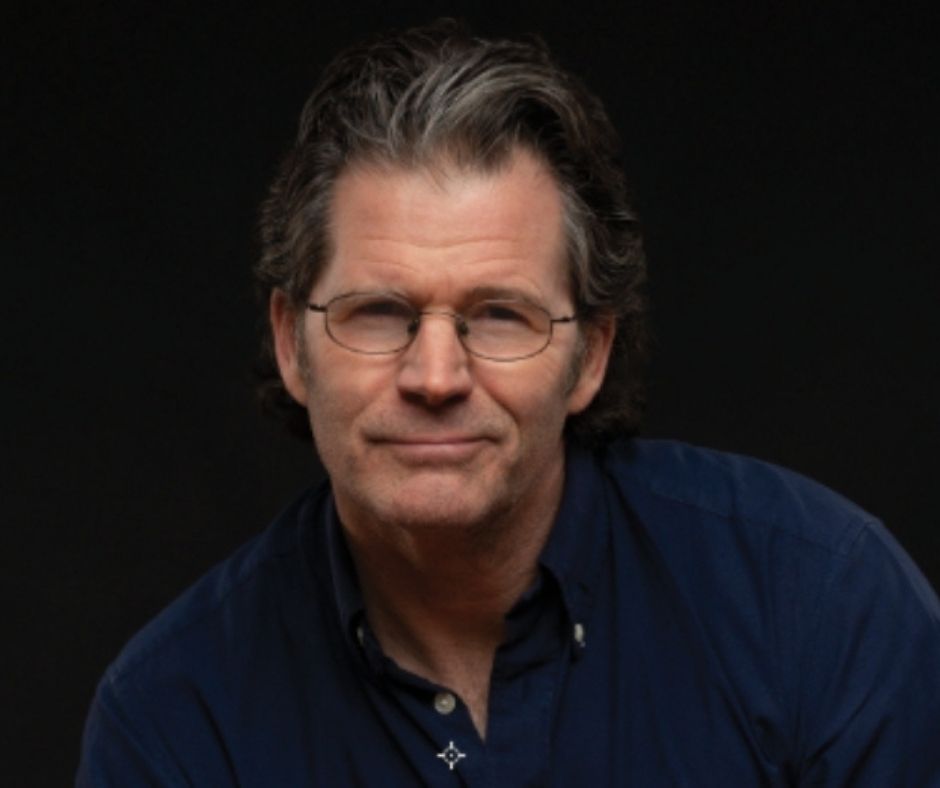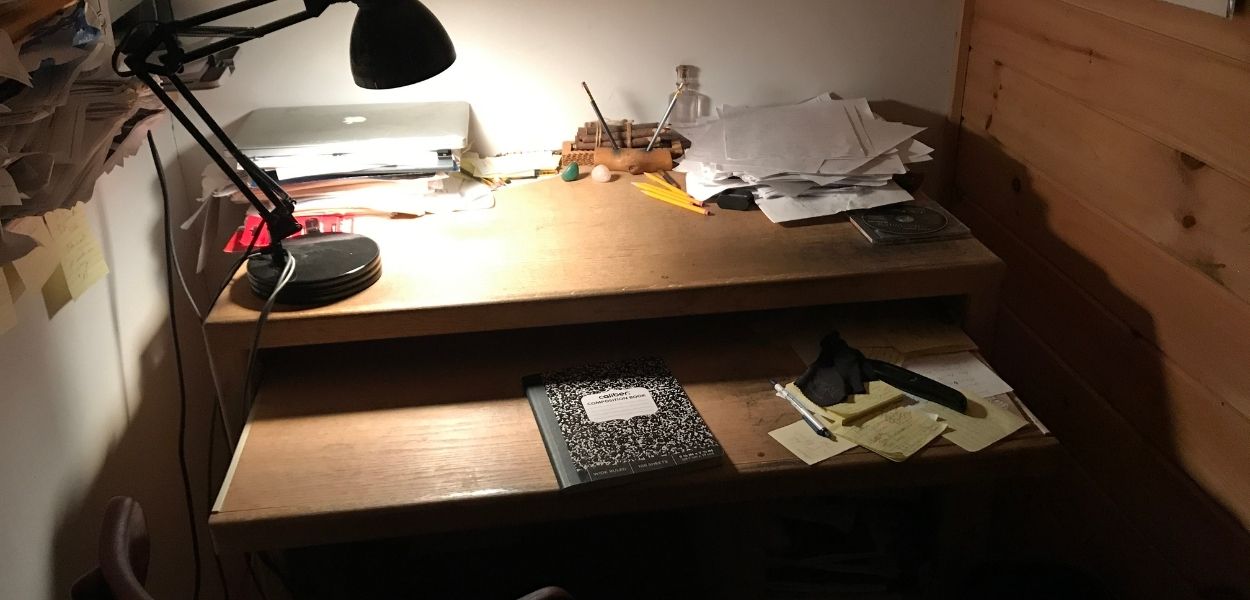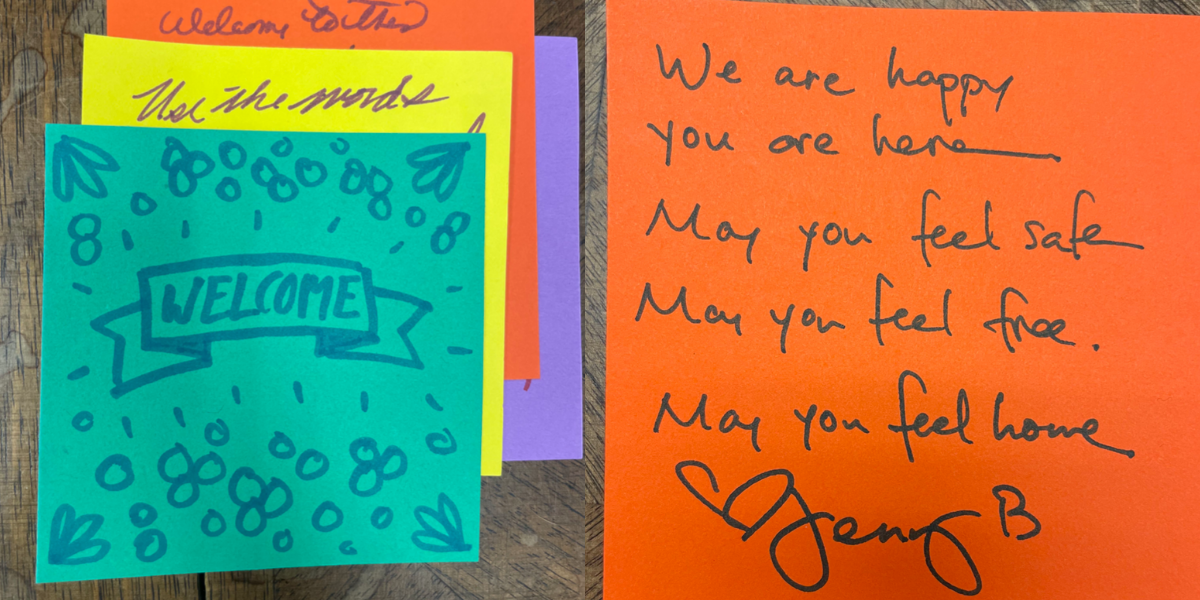The Writer’s Desk features the desks and writing practices of Gemini Ink faculty, visiting authors, teaching artists, volunteers, students, interns, staff, partners and more. Receive new posts in your inbox by subscribing to our newsletter at bit.ly/geminiinknewsletter.
- Describe your first writing desk. How is it different (or not) from your current writing desk?
My first writing desk had a fake wood top and was in the tiny motel room I lived in for six months in Boulder, Colorado. It faced a window with a view of a dumpster and a wooden fence and the parking lot of an I-Hop restaurant. I wrote there the first story I ever published. (In Playboy magazine in 1984.) My desk now is real wood, and it faces a blank wall in a 5 foot wide by 11 foot long, sound-proof writing room I built in the basement of my family’s home (which I also built) in the woods forty miles north of Boston.
- Has your preferred place to write changed over the years?
Yes, for years I trained myself to write on trains and buses and airplanes, in restaurants and train terminals and airports and hotels. But, I prefer to begin the day by writing in my “cave”(described above) not long after waking, going – as Edna O’Brien says – from the dream world to the dream world.
- Do you have any habits or routines that you follow before writing?
I read two to five poems by any number of poets (Thomas Lynch, Mark Doty, Marie Howe, Nick Flynn, Kim Addonizio, Stephen Dunn, Matthew Dickman, Jane Kenyon, etc.), then I listen to music (Coltrane, Tom Waits, Lucinda Williams, Miles Davis, Phoebe Bridgers, Mozart, etc) while typing the previous day’s hand-written work into my laptop. I then turn off the music, put away my computer, sharpen my pencil, put headphones over my ears so that I can only hear my breath and heartbeat, then begin writing where I left off in my composition notebook.
- How important is it to you to have stability in your writing routine?
Stability is a relative term, of course, but it’s very important to me that no matter what else is going on in my life that I get in five writing sessions per week, week in and week out, month in and month out, all year long. But, we’re human beings first and writers second, and so if I’m needed by a loved one, he or she has to come first…still, I shoot for those five sessions a week (2-3 hours) and tend to get them.
- What is your secret talent? Does it ever pop up in your writing?
The only “talent” I’m clear about having is my ability to get to the desk daily, whether I feel like it or not. It’s a certain kind of work ethic I believe a writer absolutely must have. My maternal grandfather, a third-grade educated pipe fitter, used to say, “The harder I work, the luckier I get.”
- What theme or symbol often emerges in your work? Why are you drawn to this theme/symbol?
I believe that it’s better if a writer is not overly aware of what she or he is up to on the page, thematically. Rumi said, “Sell your cleverness and purchase bewilderment.” I think a free-fall, with words, into a state of bewilderment is the truest route to excavating something honest, real, evocative, and genuinely compelling. So, therefore, I try NOT to think too much about the prevalent themes or symbols in my work. That said, when I ponder what I’ve written over the years, I can see – thematically speaking – that I tend to be haunted by how wrongly a life can go…
- Do you like things to be carefully planned out or do you prefer to just go with the flow? Does this also apply to how you lay out a story?
No planning whatsoever. Just pick up that sax, and blow! I stand by the wise words of fiction writer, Richard Bausch: “Do not think; dream.” And this also how I have always lived my life, instinctively and in constant improvisation, which is why I have never won a chess match….
- What is your next project?
I just delivered to my publisher a new novel, but I and my editor agree that it needs another revision from me. (I love, by the way, what the writer Paul Engle said about this: “Writing is rewriting what you have already rewritten.”) But I truly love the revision process, that moment when you’ve got all the clay on the table – hard-earned clay – and now you’re whittling it down to its truest essence. I’m also hoping to deliver to my publisher this year a collection of personal essays, a form I love and have been working in for years.
- If people want to learn more about your work, where should they go?
Who knows? Your local, independently owned book store? And not Amazon, never Amazon, an entity whose scorched earth, rabid capitalism has robbed hundreds of communities of brick and mortar book stores. One last thing: beware of that iPhone in your hand. I, as of this writing in early June 2021, have never sent a text or been on social media. I have never received an emoji or a meme. I do not own an iPhone and never will. Why? Because I am philosophically opposed to their existence. Since their emergence in 2012, the rates of depression and anxiety and suicidal ideation in young people has shot through the rafters. People are addicted to these gadgets that put them in a trance staring at largely nothing. In one of the late Mary Oliver’s poems, she writes: “Pay attention, be astonished, tell about it.” But how can we be astonished if we’re stuck in a constant loop reading about some celebrity’s latest lunch or party on some yacht in an ocean far away? I own a flip phone that I keep in my truck for emergencies. If someone needs to get a hold of me, they know where I live.
Peace and love, and may the muse be with you- Andre

Andre Dubus III’s seven books include the New York Times’ bestsellers House of Sand and Fog, The Garden of Last Days, and his memoir, Townie. His most recent novel, Gone So Long, has received starred reviews from Publisher’s Weekly and Library Journal and has been named on many “Best Books” lists, including selection for The Boston Globe’s “Twenty Best Books of 2018” and “The Best Books of 2018,” “Top 100,” Amazon.
Dubus has been a finalist for the National Book Award, and has been awarded a Guggenheim Fellowship, The National Magazine Award for Fiction, two Pushcart Prizes, and is a recipient of an American Academy of Arts and Letters Award in Literature. His books are published in over twenty-five languages, and he teaches full-time at the University of Massachusetts Lowell. He lives in Massachusetts with his wife, Fontaine, a modern dancer, and their three children.



